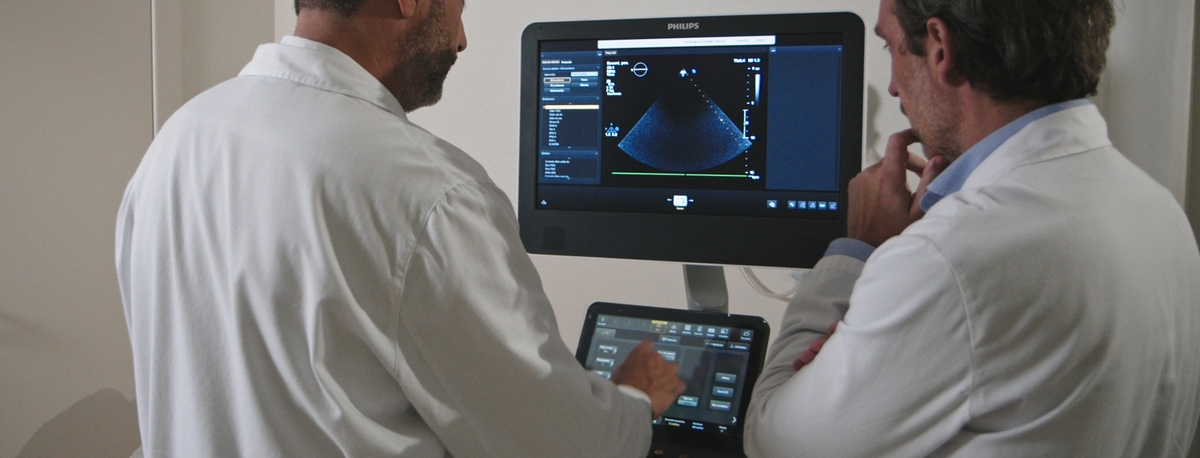

Cancer Assessment and Prevention
Every year, more than 100,000 new cases of cancer are diagnosed. The risk of developing cancer is assessed based on the patient's medical history, and genetic testing may be recommended to enable early diagnosis and effective treatment of cancer.Today, cancer is the most prevalent disease in our lives. It is estimated that currently around 162,000 cases of cancer are diagnosed in Spain each year, of which around 33,000 are diagnosed in Catalonia. The most common cancers are lung cancer, colorectal cancer, prostate cancer in men, and breast cancer in women.
The vast majority of cancers, between 75% and 80%, are sporadic and are usually caused by environmental factors. Risk factors include smoking, obesity, a sedentary lifestyle (little physical exercise), a high-fat diet, alcohol consumption, sun exposure, and exposure to carcinogenic substances.
Twenty per cent of the remaining cancers appear in a context of familial aggregation, probably due to mixed causes (genetic and environmental), and a small percentage (5–10%) may be due to the presence of a strongly expressed genetic predisposition that is transmitted across generations.
The Cancer Assessment and Prevention Unit at the Teknon Oncology Institute is an innovative healthcare service that offers patients an assessment and evaluation of their cancer risk based on their personal and family history, as well as the possibility of genetic testing for patients with a hereditary predisposition to cancer.
- What is the Cancer Assessment and Prevention Unit?
This innovative healthcare service brings patients:
- Cancer risk assessment and evaluations based on individual and family history.
- Development of a plan for early cancer detection based on risk and prevention recommendations.
- Genetic counselling/advice: a process whereby patients and/or family members with a hereditary predisposition to cancer are informed of the probability of transmitting the hereditary susceptibility, the risk of developing the disease, screening and prevention measures, the possibility of genetic testing, and the prophylactic and therapeutic options available to mutation carriers.
- Psychological counselling, if necessary.
The objectives of cancer risk counselling and genetic counselling are to inform patients and their families about the risk of developing cancer by:
- Raising awareness of the environmental and genetic risk factors for cancer.
- Detecting how heredity contributes to cancer and the risk to family members.
- Informing family members about the means available for early detection and prevention, as well as lifestyle recommendations.
- Decide on the best course of action, taking into account the risk, the objectives of the patient and their family, their motivations and the wishes of the patient and family, while respecting their autonomy.
- Assessment and consideration of the potential emotional impact that the results of a genetic analysis may have.
- How is the risk of developing cancer assessed?
There are various mechanisms for assessing and predicting the risk of certain cancers, such as breast or colon cancer, based on both personal and family history. If there is a family history, the risk of being a carrier of a genetic predisposition can be assessed and the indication for genetic testing evaluated.
- Who can benefit from this?
The services provided by the Cancer Assessment and Prevention Unit can benefit people who have:
- Three or more family members affected by the same cancer or associated tumours (colon and endometrium, breast and ovary).
- Two or more first-degree relatives diagnosed with cancer at an early age, before the average age for the population, and/or with people who have had tumours in different locations.
- Bilateral involvement in the case of paired organs (breasts, kidneys).
- Family history of syndromes where hereditary predisposition to cancer has been demonstrated.
- Individuals with cancer risk factors who wish to learn about early detection or prevention measures.
- What are the advantages of genetic analysis?
- A positive result can help prevent, detect early, or treat cancer more effectively.
- A positive result allows the genetic study to be offered to other family members at risk and, if the mutation is confirmed, to offer them early detection and prevention measures tailored to their risk.
- A negative result for a mutation known to run in the family means that the risk of developing cancer is the same as that of the general population.
- It does not involve any physical discomfort, apart from a routine blood test.
- The privacy of the results is guaranteed.
- How does the cancer assessment and prevention programme work?
Before the consultation:
In order to make a proper assessment, it is essential to know about your personal and family history of cancer or premalignant lesions. It is advisable to bring the following information to the appointment:
- Family history of cancer in at least three generations.
- Medical reports, where possible, to confirm the different types of cancer or diagnoses, both for the patient and other family members.
Before the genetic analysis:
The process comprises:
- Compilation of personal and family history data and estimation of the risk of developing cancer or being a carrier of any genetic predisposition.
- Estimation of personal and family risk perception.
- Collection of the patient's personal medical history, data on their medical check-ups and frequency of tests.
- Information and advice on cancer risk or genetic predisposition.
- Assessment of the indication for genetic testing.
- Health education on inheritance mechanisms, cancer development, early detection and prevention measures, risk factors, protective factors, etc.
- Assessment of the family, psychological or emotional implications related to conducting a genetic study.
- In the event of genetic testing, recommendations and referral for follow-up to the appropriate specialists in early detection tests.
After the genetic analysis:
- Regular monitoring based on results and risk.
- Updating of tests and preventive treatments with referral to other specialities.
- Emotional support.
- Family implications.


































